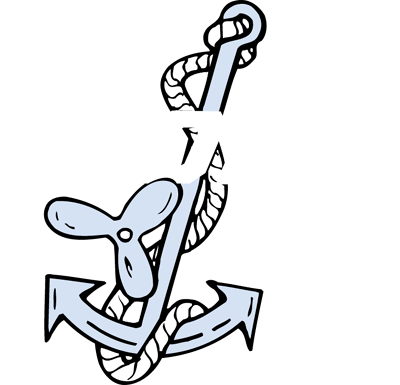Review of Vice Commandant Appeal Decisions of Interest
USCG v. MARK GLEN WAIN
(App. Dec. No. 2670)(October 27, 2007)
A revocation by the Administrative Law Judge (ALJ) of a Master Mariners Document (MMD) was affirmed on appeal. The ALJ found that the respondent below submitted a fraudulent application for renewal of his MMD. The mariner had failed to disclose a number of prior original criminal convictions. On his application for document renewal, the mariner stated: “it is not my intention to deceive or mislead by any absence or the absence of information. Any conviction, traffic violation or driver’s license suspension is currently on record at U.S.C.G. Long Beach.”
On appeal the mariner argued that the Coast Guard should be responsible for searching public records to ascertain a criminal record history, as he (the mariner himself) was only a high-school graduate and a “simple seafarer” and had neither the resources nor the competence to conduct a comprehensive search as did the Coast Guard.
Not helping the mariner’s case was the fact that he had an extensive criminal record, much of which had not been previously disclosed in prior applications to U.S.C.G. Long Beach.
The mariner’s appeal for clemency was rejected as not properly before the Commandant on appeal. The Commandant set forth the clemency procedures found at 46 CFR §5.901-905.
Comment and Assessment:
The mariner’s argument had a certain logic and equity to it, but it was not accepted by the Vice Commandant. Remember this case if an insured tries to make this point with you!
USCG v. BOUDREAUX
(App. Dec. 2671) (October 27, 2007)
This was an appeal by the Coast Guard of the dismissal of its Complaint by the Administrative Law Judge (ALJ) for repeated failure on the part of the Coast Guard to comply with ALJ-ordered discovery and a subpoena. The ALJ refused to grant two Coast Guard motions to allow telephonic testimony at the hearing, based on the importance of the witnesses, the need for all sides to assess credibility and the short travel distances involved for the witnesses. In response to this denial, the Coast Guard apparently showed up at the hearing and refused to call any witnesses. The ALJ then dismissed the Coast Guard’s Complaint at the opening of the hearing.
The Coast Guard appealed claiming that it was reversible error for the ALJ to deny its motions for telephonic discovery, and that the judge was biased, has pre-judged the case and should have been dismissed or recused. The Vice Commandant had no difficulty affirming the ALJ’s dismissal, stating that the denial of the Coast Guard’s motion was within the ALJ’s sound discretion, and that a mere denial of a motion is not evidence of prejudice on the part of an ALJ.
Comment and Assessment:
This will be a good case to cite if you wish to oppose a Coast Guard motion for telephonic testimony at a hearing. The importance of the witness, need of the ALJ and all sides to assess credibility and short travel distances were all reasons for live testimony cited by the ALJ and affirmed by the Vice Commandant.
USCG v. CLARENCE V. MARSHALL, JR.
(App. Dec. 2672) (December 31, 2007)
Respondent was standing a bridge watch aboard his vessel when two fellow crew members, reportedly intoxicated, approached him and a fight ensued. Both sides claimed intoxication and racial slurs on the part of the other. The fighting parties were separated, removed from the vessel and transported separately to the company office where the incident was reported to the police. In addition, the respondent himself was ordered by his employer to take a chemical test and refused. The Coast Guard then charged the respondent with misconduct for refusal to test but, after the hearing, the Administrative Law Judge (ALJ) dismissed the Coast Guard’s Complaint for failure to prove “reasonable cause” to order a chemical test at the outset. The Coast Guard appealed the ALJ’s dismissal.
On appeal, the Vice Commandant affirmed the ALJ’s dismissal. Determination of “reasonable cause” is an issue of fact for the ALJ. From evidence presented at the hearing, the ALJ properly found that at the time the employer ordered the respondent to submit to a chemical test “no person had observed evidence that the respondent’s manner, disposition, speech, muscular movement, general appearance or behavior had been effected by an intoxicant, so that it was apparent by observation.”
Refusal to consent to a chemical test is therefore not misconduct under 33 CFR 95.04 where there is no evidence of intoxication as set forth by 33 CFR §95.035(a)(2), and there is therefore no “reasonable cause” to require the test in the first place.
Comment and Assessment:
Only a law enforcement officer or a marine employer may direct an individual operating a vessel to undergo a chemical test when reasonable cause exists. 33 CFR §95.035(a). Reasonable cause exists when: (1) the individual was directly involved in the occurrence of a marine casualty; or (2) the individual is suspected of being in violation of the standards in §95.020 or §95.025. 33 CFR §95.035(a)(1)-(2). Section 95.020 sets the standards of intoxication at .10% alcohol by weight in blood for operation of a recreational vessel, .04% alcohol by weight in blood for operation of a non-recreational vessel, or observable effects of an intoxicant on a person’s manner, disposition, speech, muscular movement, general appearance or behavior. 33 CFR §95.020 (a)-(c). This case clearly defines “reasonable cause” and makes it clear that the Coast Guard must show facts to support the existence of reasonable cause as an element of its proof.

